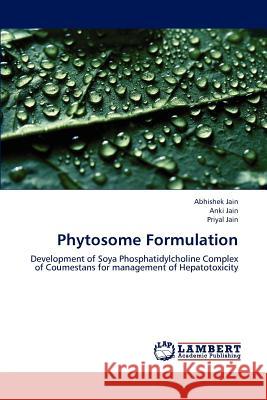topmenu
Wyniki wyszukiwania:
wyszukanych pozycji: 3
 |
Life: Living in the Brackets
ISBN: 9798301714597 / Angielski / Miękka / 2024 / 244 str. Termin realizacji zamówienia: ok. 16-18 dni roboczych. |
cena:
39,87 |
 |
Past: Living in the Yesters
ISBN: 9798303121522 / Angielski / Miękka / 2024 / 214 str. Termin realizacji zamówienia: ok. 16-18 dni roboczych. |
cena:
39,87 |
 |
Phytosome Formulation
ISBN: 9783659191398 / Angielski / Miękka / 2012 / 76 str. Termin realizacji zamówienia: ok. 10-14 dni roboczych. Water-soluble Phytoconstituent molecules (mainly polyphenolic) can be converted into lipid-compatible molecular complexes. Several studies have indicated the beneficial role of phospholipids in enhancing the therapeutic efficacy of some molecules having poor oral absorption. Silybin is one such molecule having poor oral bioavailability. Efforts have been given to prepare phospholipids complex of silybin and to increase its oral bioavailability, therefore, therapeutic efficacy.Eclipta alba (L.) Hassk. (syn. Eclipta prostrata L.), is a plant belonging to the family Asteraceae. It grows commonly...
Water-soluble Phytoconstituent molecules (mainly polyphenolic) can be converted into lipid-compatible molecular complexes. Several studies have indica...
|
cena:
219,69 |










